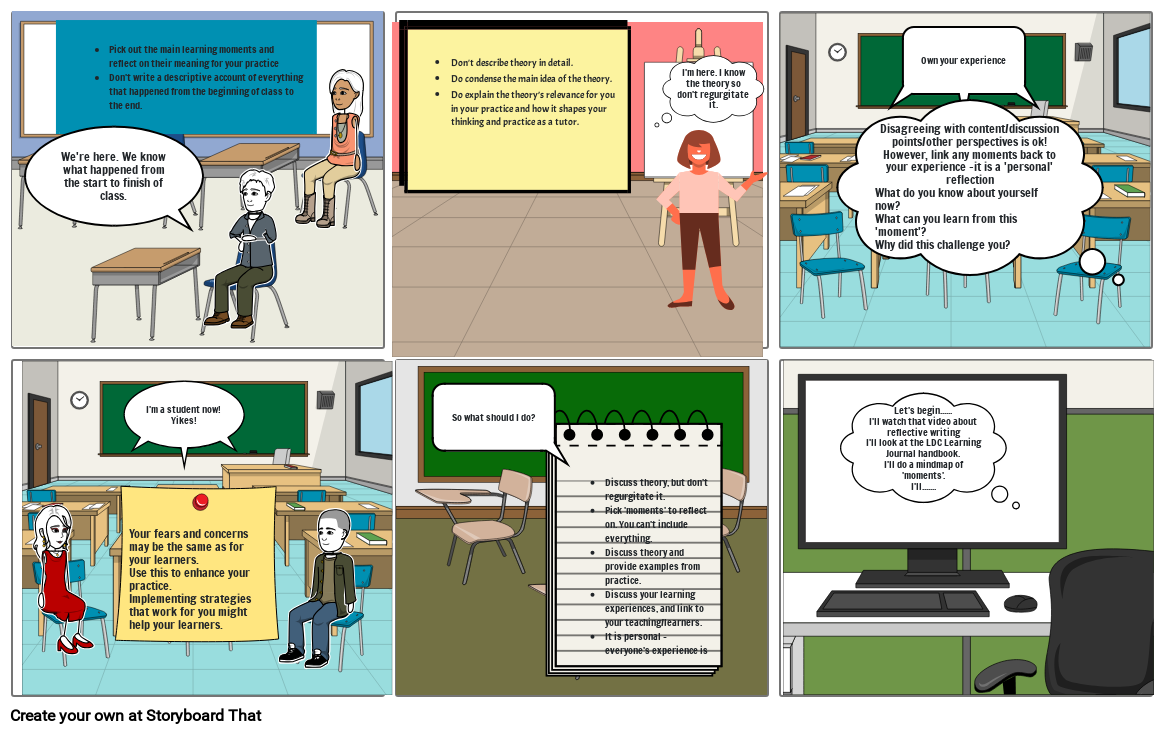What not to include in your reflection

Storyboard Text
- Slide: 1
- Pick out the main learning moments and reflect on their meaning for your practice Don't write a descriptive account of everything that happened from the beginning of class to the end.
- We're here. We know what happened from the start to finish of class.
- Slide: 2
- Don't describe theory in detail.Do condense the main idea of the theory.Do explain the theory’s relevance for you in your practice and how it shapes your thinking and practice as a tutor.
- I'm here. I know the theory so don't regurgitate it.
- Slide: 3
- Own your experience
- Disagreeing with content/discussion points/other perspectives is ok! However, link any moments back to your experience -it is a 'personal' reflection What do you know about yourself now?What can you learn from this 'moment'?Why did this challenge you?
- Slide: 4
- I'm a student now! Yikes!
- Your fears and concerns may be the same as for your learners.Use this to enhance your practice.Implementing strategies that work for you might help your learners.
- Slide: 5
- So what should I do?
- Discuss theory, but don't regurgitate it. Pick 'moments' to reflect on. You can't include everything.Discuss theory and provide examples from practice. Discuss your learning experiences, and link to your teaching/learners. It is personal - everyone's experience is different.
- Slide: 6
- Let's begin......I'll watch that video about reflective writingI'll look at the LDC Learning Journal handbook.I'll do a mindmap of 'moments'.I'll.......
Over 30 Million Storyboards Created
No Downloads, No Credit Card, and No Login Needed to Try!
